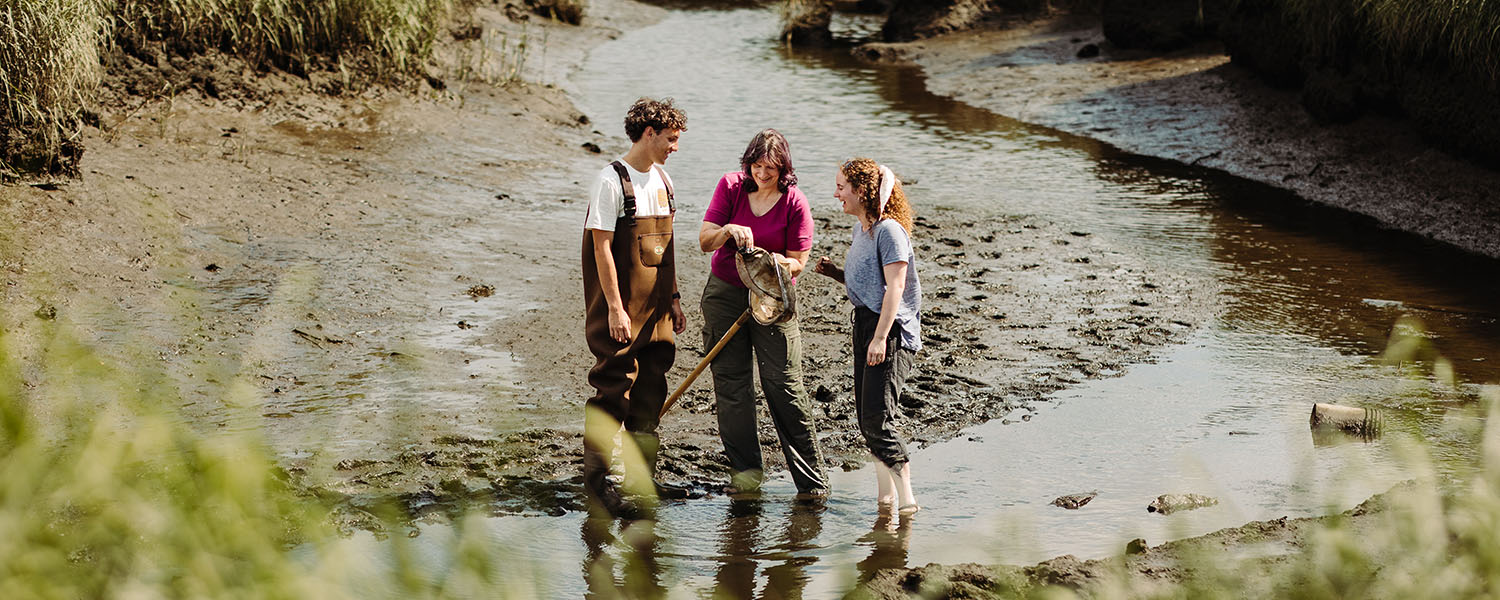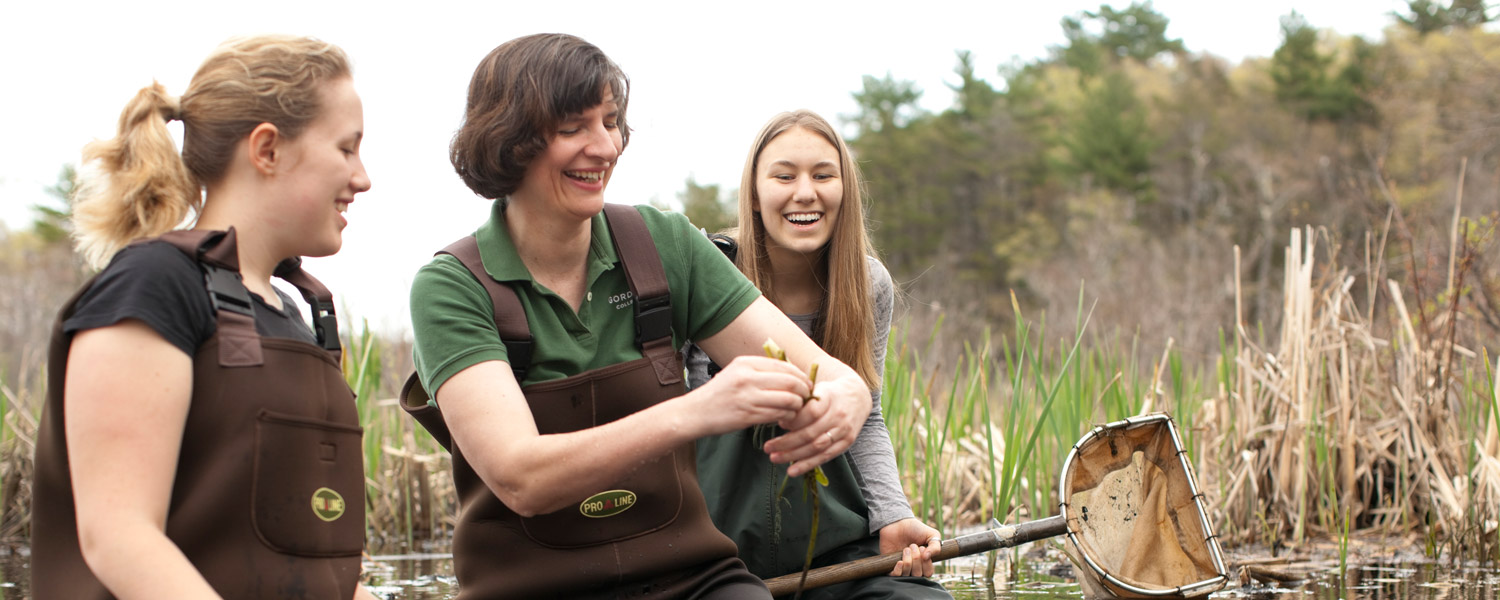

Ecology and Conservation Concentration
What does it mean to care for creation in light of your Christian faith? How do you respond to the significant environmental concerns facing our world today? If you're excited by the complexities of natural populations, communities, ecosystems and landscapes, focus your biology studies with a concentration in ecology and conservation. This concentration covers the mission-oriented and multidisciplinary field of conservation biology combined with the dynamic field of ecology, as you study the exciting ecological interrelationships that affect all species. You'll learn about the impact of humans on biodiversity and how we can conserve species, habitats and ecosystems.
Why study ecology and conservation at Gordon?
You will be taught and mentored by leaders in ecology whose commitments to creation care stem from their Christian faith. Our 485-acre wooded campus and the nearby Atlantic Ocean offer dynamic outdoor classrooms for research. Through Gordon’s relationship with the Au Sable Institute, you can take courses in Michigan, India and Costa Rica, and earn a certificate as a naturalist or a land, water or environmental resources analyst. Outside of the classroom you can be active in Biology Club or find like-minded peers in Advocates for a Sustainable Future (ASF).
Learn about other biology concentrations →
What careers can I pursue as a biology major with an ecology and conservation concentration?
Careers in ecology and conservation are vast and varied. You can pursue a career in governmental conservation organizations, explore the National Audubon Society and National Park Service, work with climate change science or explore environmental consulting. You can also pursue research, professionally or educationally. Whether in a research lab or on the policy frontlines, tailor your studies within the ecology and conservation concentration and related programs to achieve your goals.
Realize your passions with internships or jobs in:
- Marine, wetland, or terrestrial research
- Environmental education
- Environmental policy and planning
- Sustainable agriculture
- Conservation science
- Habitat restoration
- Environmental assessment
- Aquaculture
- Environmental missions
Learn more about jobs and internships →
Ecology and Conservation Courses
- Conservation Biology (BIO304)
- Ecology (BIO310 or equivalent AuSable or CCSP course)
- Landscape Ecology and GIS (BIO440 with or without BIO441 or equivalent AuSable or CCSP course)
- Molecular Cell Biology (BIO321) Not required, but this course is strongly recommended for students who wish to attend graduate school in ecology and conservation
Go the extra mile!
Gordon’s emphasis on creation care is part of a longstanding commitment to sustainability, maintained by our campuswide effort called Restore Creation. Our student-led green group, Advocates for a Sustainable Future, involves fellow students in environmental efforts—like an organic garden—and education. Biology Club hosts regular gatherings to maintain the close-knit community within one of Gordon’s largest majors.
Off campus, students complete internships at a range of environmental institutions, including:
- Parker River National Wildlife Refuge
- U.S. Fish and Wildlife Service
- Massachusetts Audubon Society
- Ocean Genome Legacy
- Trustees of Reservations
- Sustainable farms
Global Opportunities
Expand your global perspective on the environment through short-term and semester-long programs:
- ECHO Farms Spring Break Trip (Florida)
- Creation Care Studies (Belize and New Zealand)
- Au Sable Institute (Michigan, India and Costa Rica)
Interested?
For more information contact:
Dr. Greg Keller
Professor of Biology
E [email protected]
P 978 867 4852
Department Chair of Life, Health and Physcial Sciences
The environmental science concentration is part of the biology major.

 Biology
Biology Ecology and Conservation Concentration
Ecology and Conservation Concentration


